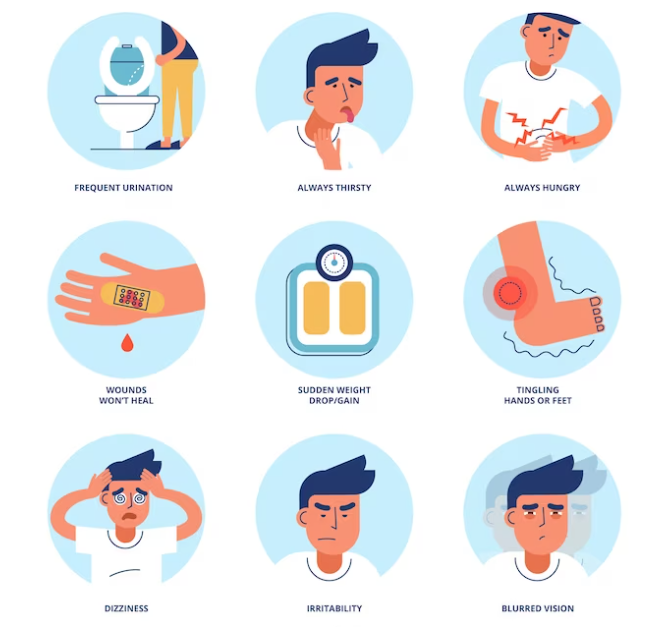
The Role of Hormones in Causes and Risk Factors of Diabetic Neuropathy
Introduction: Diabetic neuropathy is a common complication of diabetes, affecting the nerves throughout the body. In this blog, we’ll delve into how hormones contribute to the causes and risk factors of diabetic neuropathy in simple language suitable for everyone.
Understanding Diabetic Neuropathy: Diabetic neuropathy is nerve damage caused by high blood sugar levels over a prolonged period. Hormones, particularly insulin, play a crucial role in regulating blood sugar levels. When these hormones are imbalanced, it can lead to nerve damage, resulting in neuropathy.
Hormonal Influence: In diabetes, the body either doesn’t produce enough insulin or doesn’t use it effectively. This hormonal imbalance leads to elevated blood sugar levels, which can damage the nerves over time, contributing to the development of diabetic neuropathy.
Causes of Diabetic Neuropathy: The primary cause of diabetic neuropathy is prolonged exposure to high blood sugar levels. However, hormonal imbalances, along with other factors such as inflammation, genetic predisposition, and lifestyle habits, can increase the risk of nerve damage.
Risk Factors: Several factors can increase the risk of developing diabetic neuropathy, including poorly managed diabetes, long-term high blood sugar levels, high blood pressure, smoking, obesity, and a sedentary lifestyle. Additionally, certain hormonal imbalances, such as low levels of thyroid hormones, can also contribute to neuropathy risk.
Preventive Measures: Managing diabetes effectively is key to preventing diabetic neuropathy. This includes controlling blood sugar levels through medication, diet, and exercise, monitoring blood pressure, maintaining a healthy weight, quitting smoking, and staying physically active.
Conclusion: Hormonal imbalances, particularly in insulin and other hormones involved in blood sugar regulation, play a significant role in the development of diabetic neuropathy. By understanding the causes and risk factors associated with neuropathy, individuals can take proactive steps to manage their diabetes effectively and reduce the risk of developing nerve damage.
To seek medical advice, always consult a Doctor. Here are our recommended experts. Click Here
To read more on Diabetic neuropathy. Click Here


